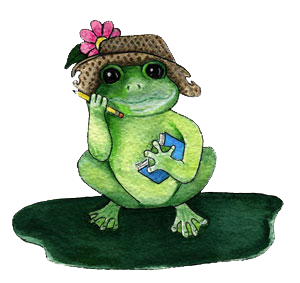Having been raised by older parents who lived through the Great Depression and WWII, I was keenly aware what America and its values and opportunities had afforded them and their immigrant parents. Lessons were repeated year-round, during big and small occasions, on everything from soup to nuts or, in the case of our home, from bread to uniforms.
I was very young and had helped Mommy carry home some of the groceries that day. I was tall enough now to help unload the items, so she instructed me to put the fresh loaf of French bread on top of the washer, a surface that was often used for spillover storage in our kitchen. So, I pulled out the long loaf and plopped it down. Mommy immediately picked up the loaf and, turning the label and bread right-side up, gently replaced it back onto the washer’s surface, explaining to me as she did:
We never put a loaf of bread upside down or treat it roughly, Annette. You should always lay it down with its top crust facing up; this is a matter of showing the proper respect and thanks for the food we have on our table. We need to appreciate all we have, Honey…
That made quite an impression on me; but the story wasn’t finished. Mommy shared how when my grandfather had first come to America, he tasted the soft white bread and thought it was cake. Throughout my growing years, Mom’s grocery lists always differentiated between French bread and American Bread, i.e. normally either Roman Meal or Wonder Bread.
Testimonials from Hollywood stars were in full swing; commercials first appeared in black and white on families’ original round screen televisions; those families who didn’t yet have their own TV could congregate down on the boulevard and watch the exciting new technology through Uncle Al’s TV Sales and Repair shop window. Even Annie Oakley solemnly stood there and, with conviction, promised the parents just how good Wonder Bread could be for their children; it helped build strong bodies in eight ways! What parent could dispute that?
Many years later, I married a man eight years older than I; one of my more enjoyable one-liners was reminding him in front of others that by the time I was born, food science had advanced so much that Wonder Bread now promised to build strong bodies twelve ways! The line was simple but effective.
Then of course there were the men who wore uniforms – police, military, didn’t matter. We were to address them with absolute respect. Regarding the veterans around us, I was instructed by both parents not to ask any questions about their war years. Daddy would later clarify:
The ones that seem to talk a lot are usually the ones that saw the least; don’t believe everything you hear. Learn to watch who the quiet ones are, Annette; they are most likely the men who experienced the horrors of war and saw the most hell. You’ll never hear them admit how bad it was, or even talk about their experiences, not even after years have passed…
Most of Daddy’s peers had either served in the war or had worn a uniform in some capacity. Daddy was too old to enlist, but it didn’t mean he couldn’t serve in some capacity, so he left his pattern-making job and helped build semis for the war effort. I grew up hearing stories of how my family and others learned to live with rationing of such things as sugar, meat, fuel, ladies hosiery…nothing that I would ever really comprehend well, since Mommy and I just walked down the boulevard to pick up sugar when we needed it.
The war may have ended, but the life style habits were deeply rooted and affected our upbringing. We wasted little in our home, and we were grateful for everything, no matter how minor the item might be in the greater scheme of things. Whether in private or in public view, we children were expected to behave at all times, which included please, thank you, and responding when spoken to. We celebrated Thanksgiving and all American holidays, flying the flag on each day that the local merchant’s calendar instructed us to do so!
Our American Flag even flew from our front window sill on July 20th, 1969, when man first walked on the moon. Mom and Dad insisted and I obliged, as it was easier now for me to reach the holder fastened above shoulder level. Among that summer’s snapshots is a photo of our flag on display in front of our home; there are no markings on the back, but I know it was taken on that same day because it meant so much for our family to share in our country’s pride and greatness.
